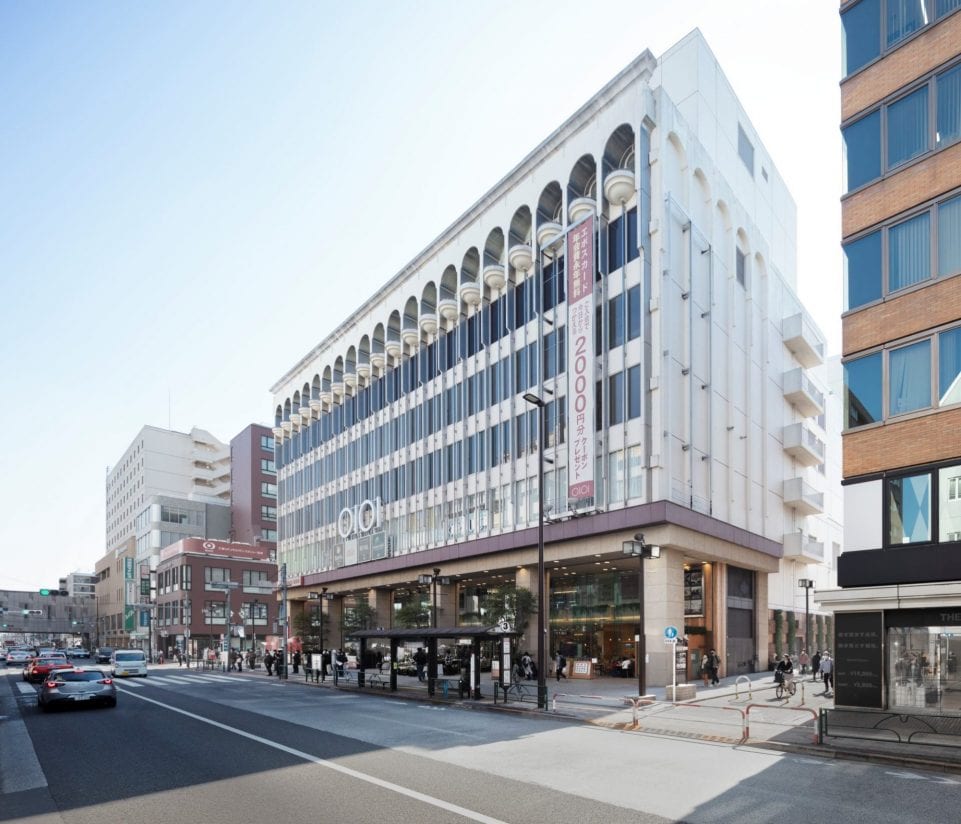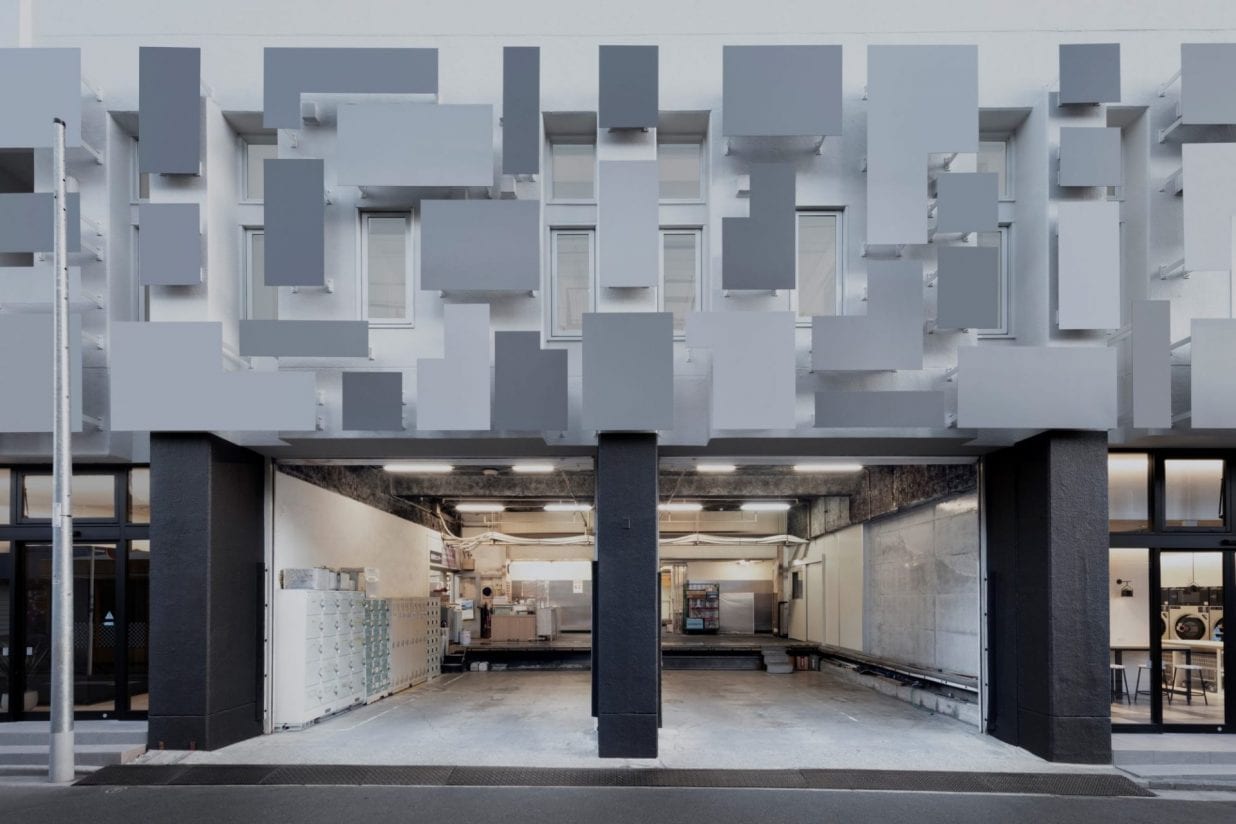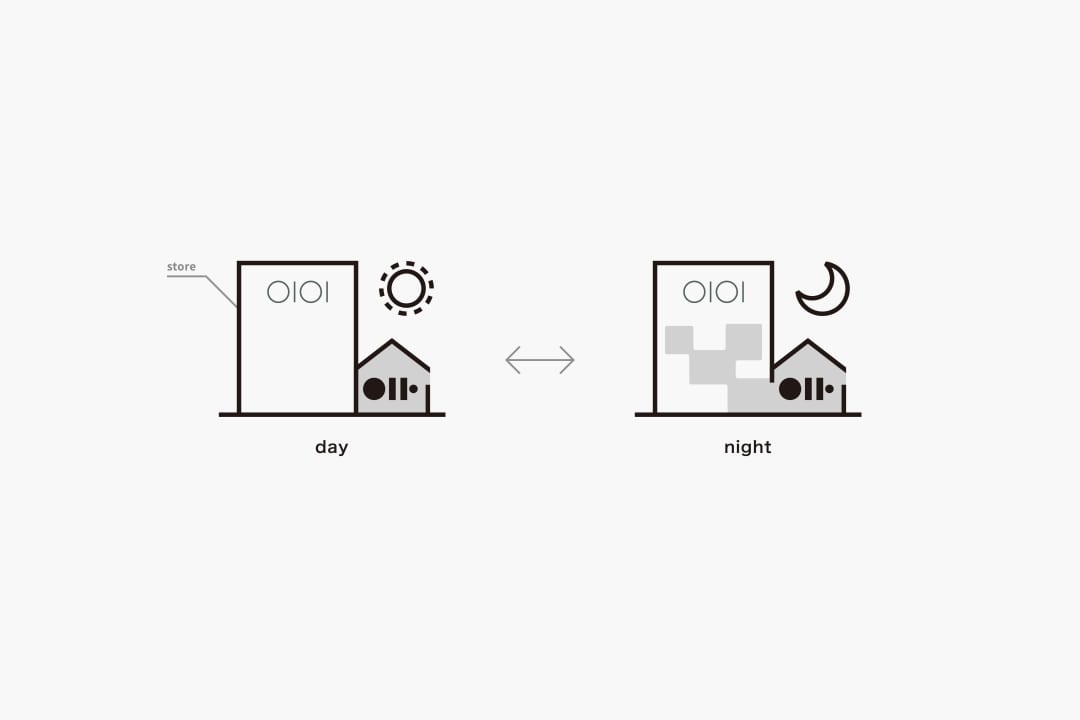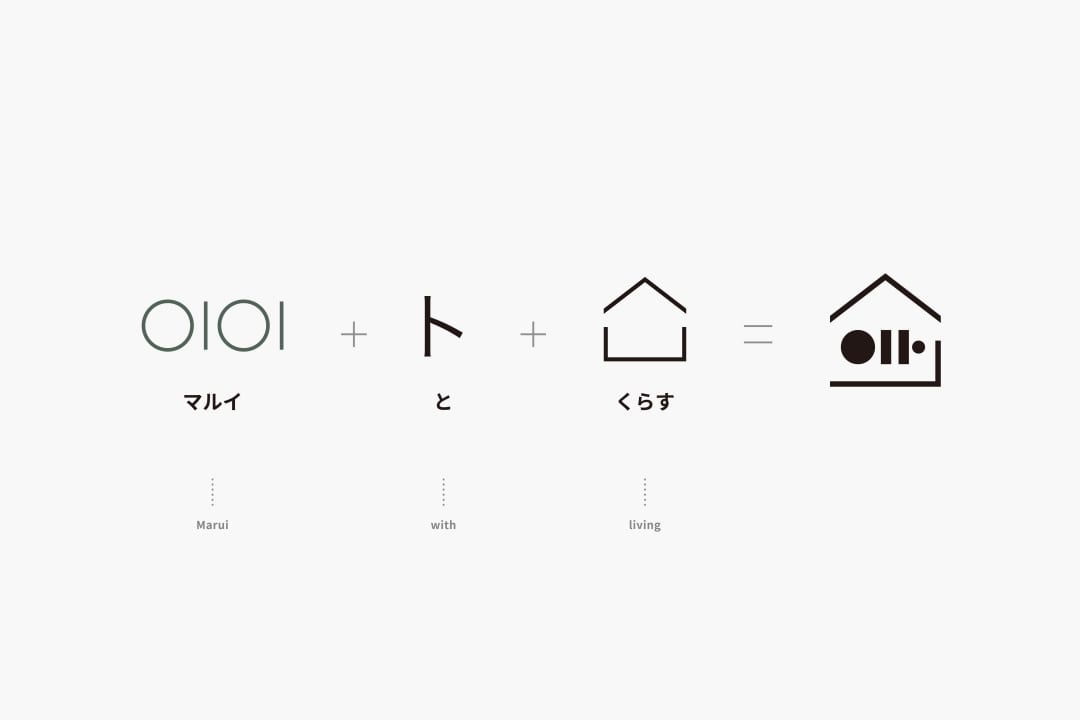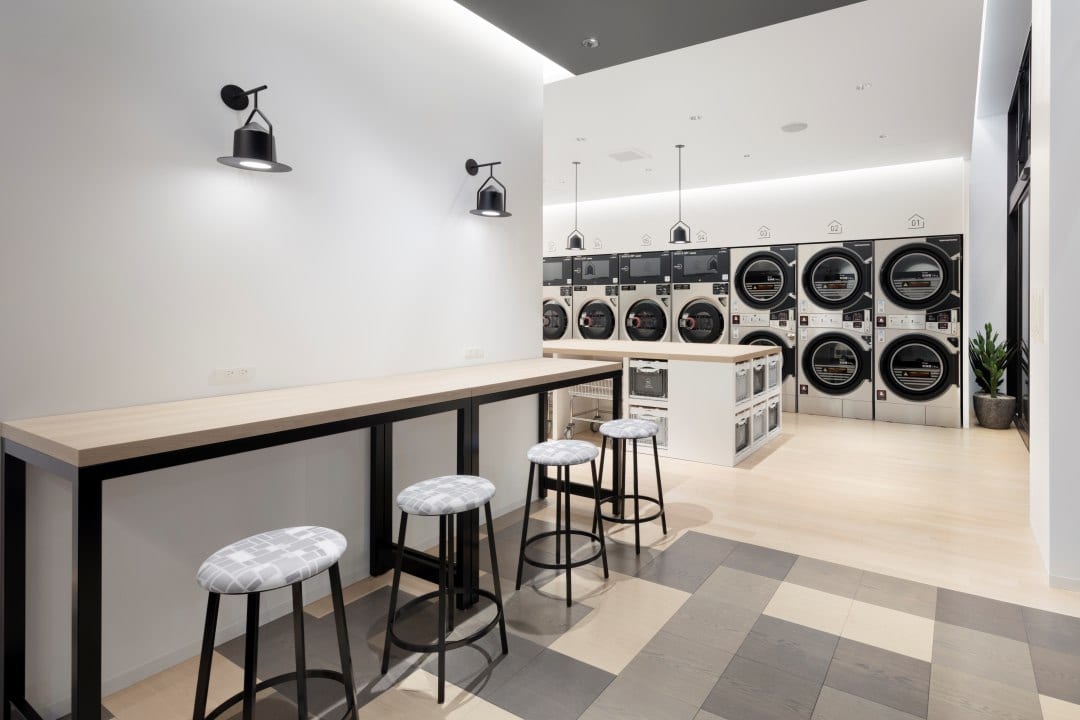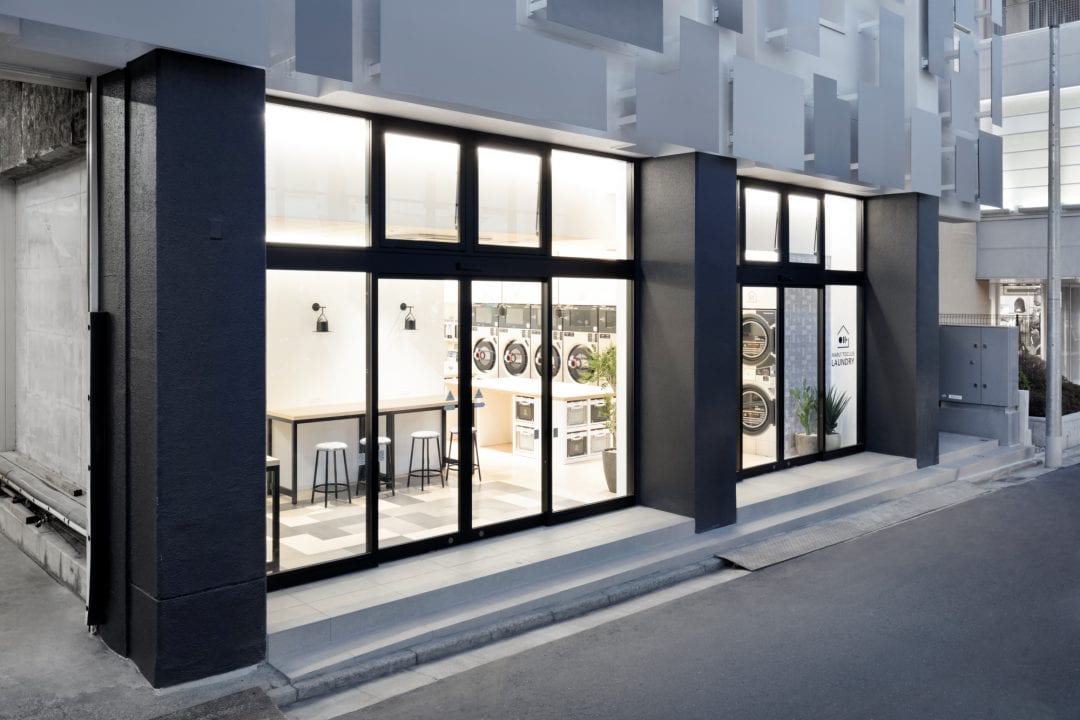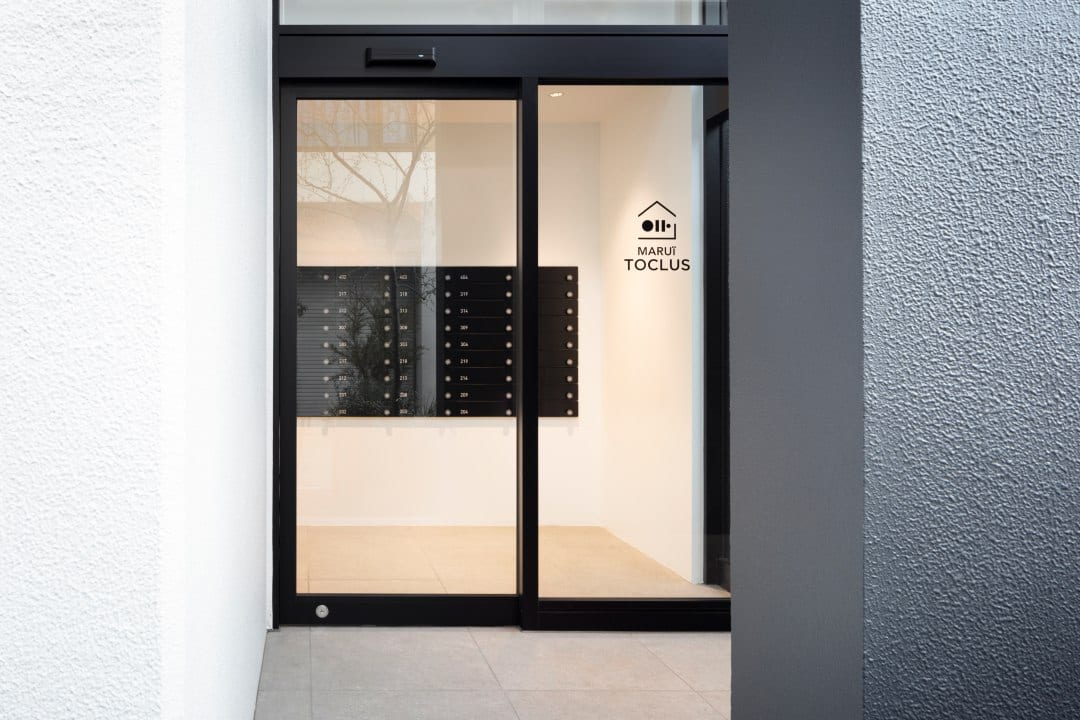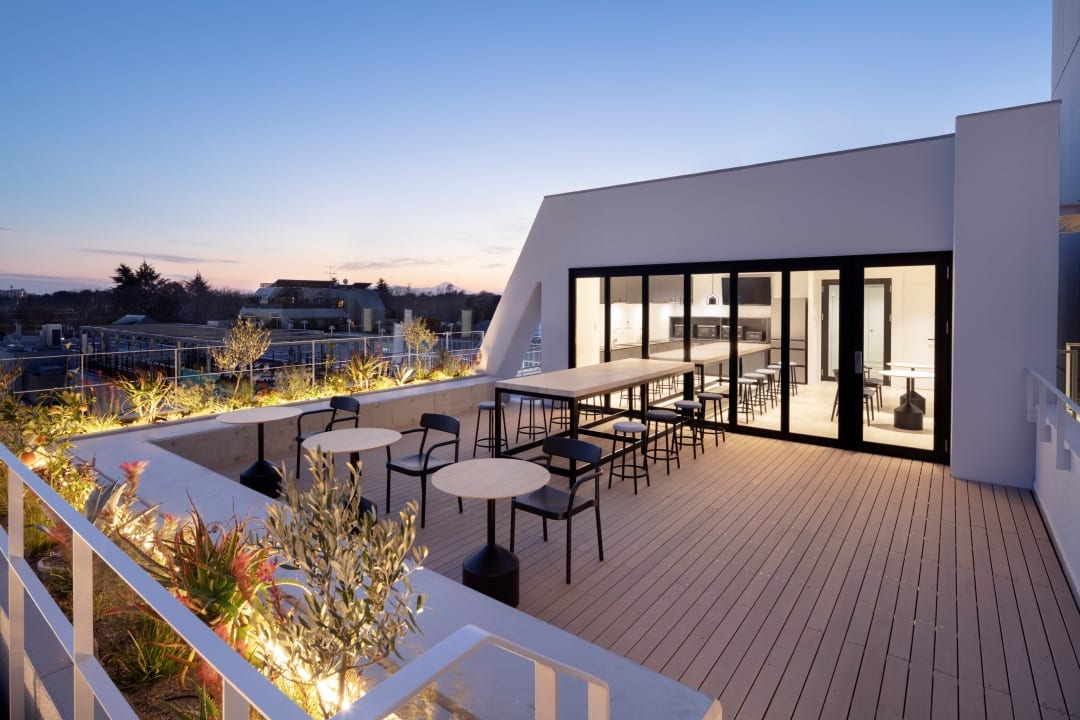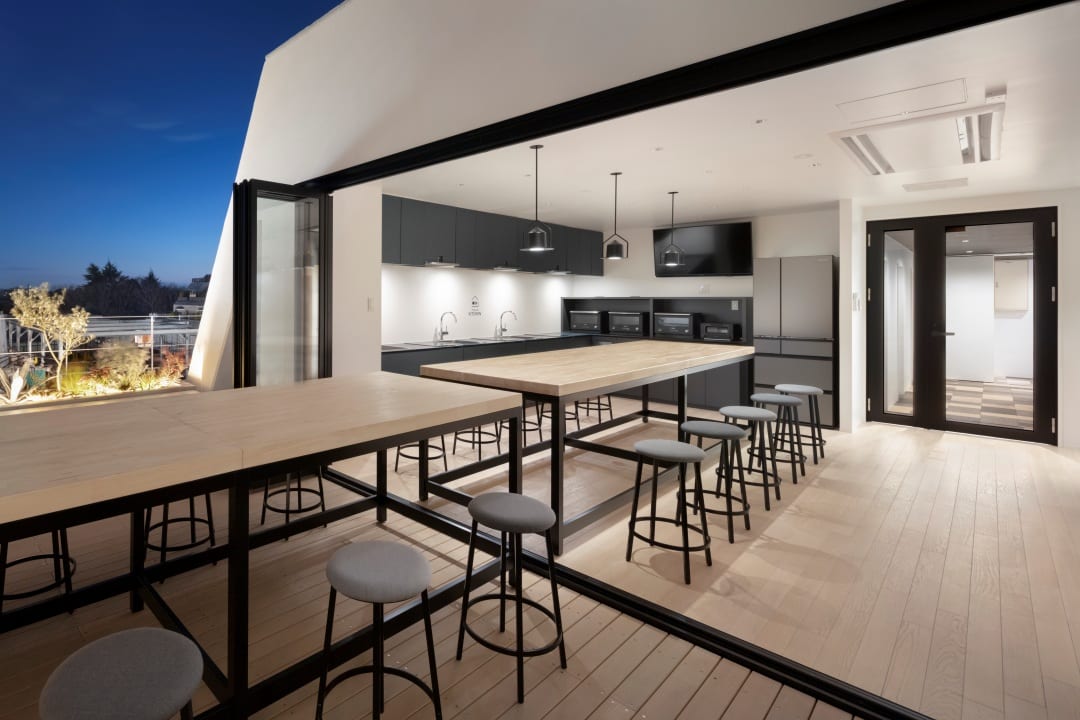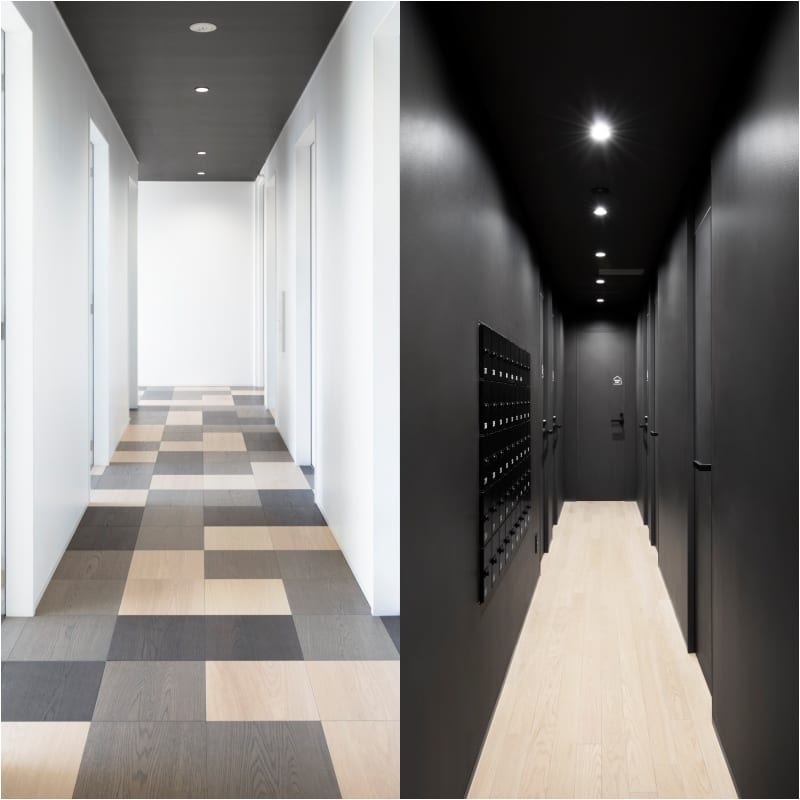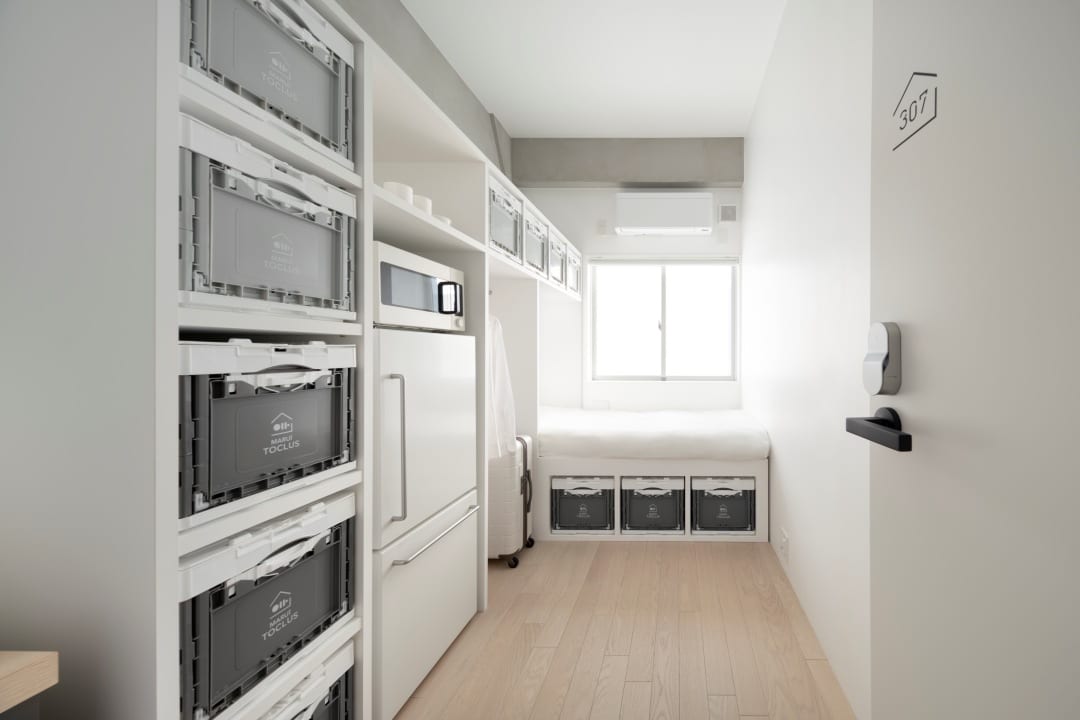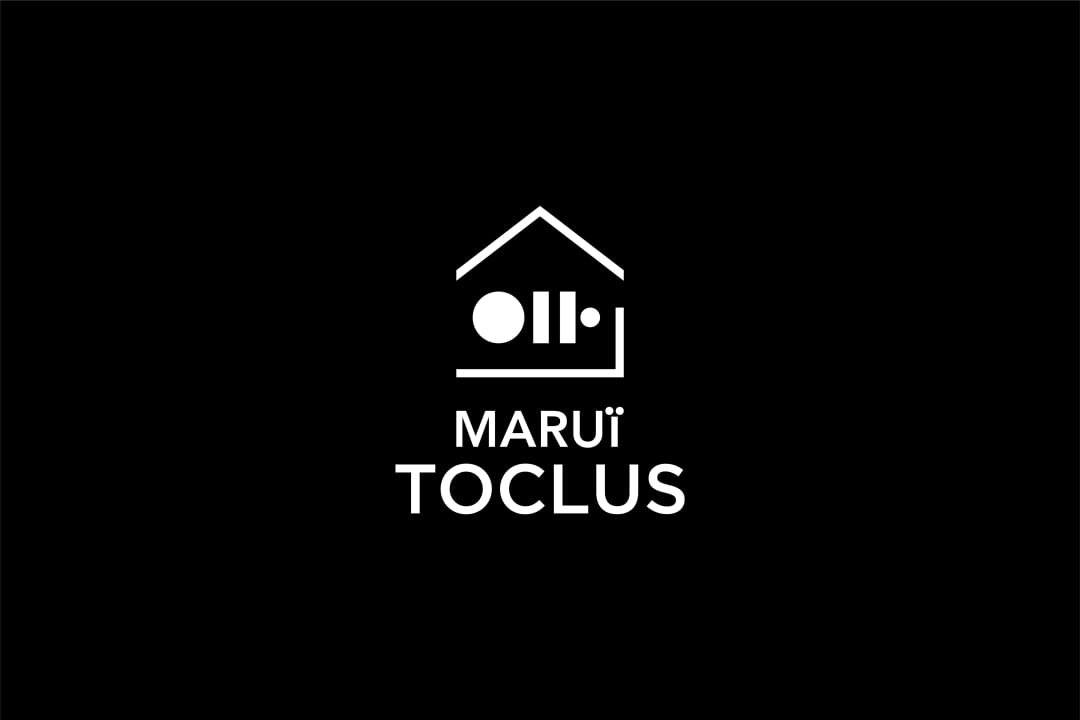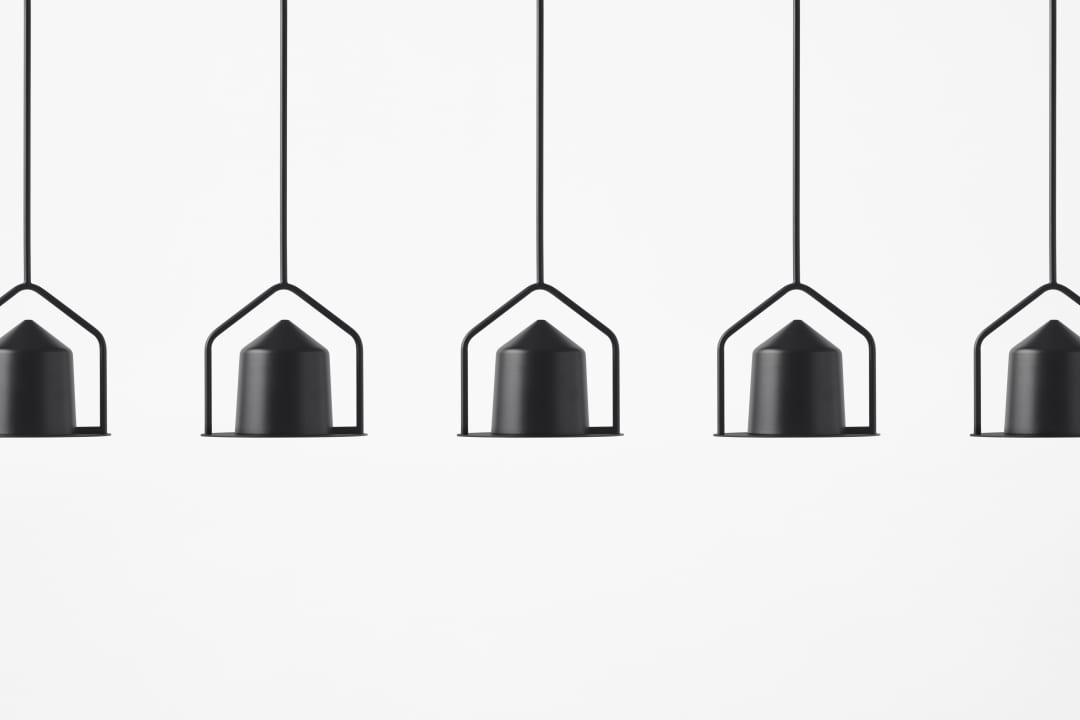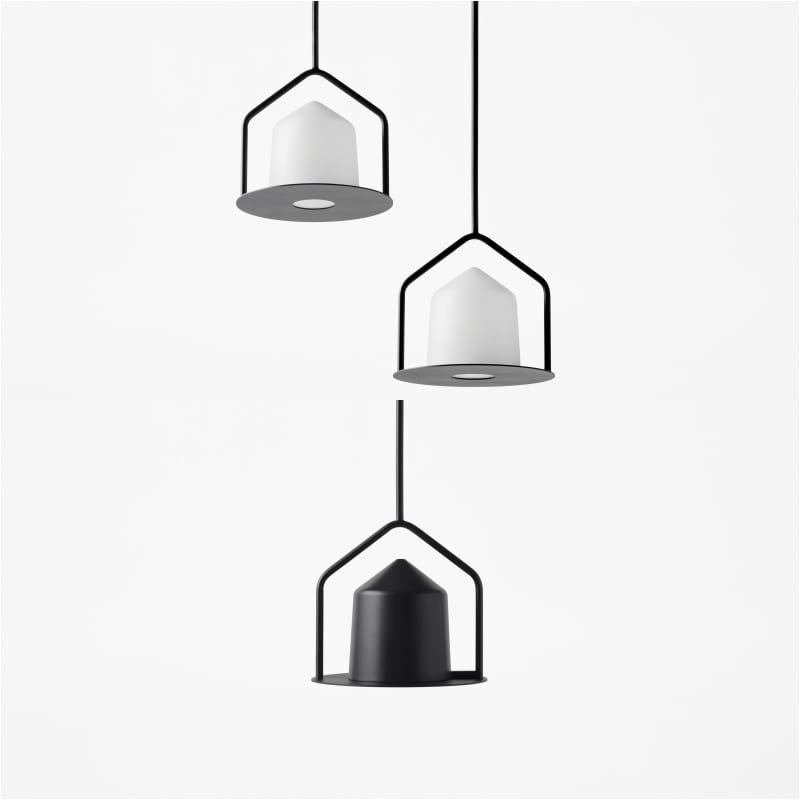The New Multi-Functional Space from Nendo
Nendo has planned to put to use commercial entities as shared residences to make use of space continuously, during the day and night. These reimagined spaces open up commercial areas, utilising the most convenient locations for multiple uses thus reducing the cost of the space on the owner and paving the way to sustainable living through reduced possessions and shared use of energy.
The Marui Group in Japan owns numerous commercial facilities in and around the Tokyo metropolitan area, many of them located in highly convenient locations such as station-fronts. The use of these commercial properties seemed to be confined to specific times and the facilities were not fully utilised outside the business hours of the store. Thus arose an idea to renovate a portion of the store into a shared residence to utilise the space by adding to its purpose by using it through the day and night. With Nendo’s interventions, a new space was created, named MARUI TOCLUS (= “to live with Marui”) was given to the shared house, and the logo was designed by combining “01 (= the Marui logo)” + “ト(= with)” +“a house shape (= living)”.
The commercial facilities of the store have a different opening while the shared residence while being open to the commercial space also has a separate entrance from the other side of the building. The shared residence is connected to the Marui Kichijoji store and is a two minutes walk from Kichijoji station. The shared residence has 43 rooms on the 2nd to 4th floors compactly housing 7 to 12 sqm rooms to reserve a substantial shared area.
Residents can enjoy a kitchen-dining space with a terrace facing the Inokashira Park and have free access to the roof floor and employee lounge in the store after hours. This the shared space that both the commercial as well as residential areas enjoy.
They can also benefit from a point refund system and discount ticket service available at the shops.
In addition, a laundromat with a waiting area that doubles as an event space is provided on the first floor, and it is open to non-residents as well.
The future plan is to build more shared houses which will allow the mutual use of common areas of each property, as well as flexibility for “easy relocation” according to changes in lifestyle or family growth.
With that in mind, the rooms were furnished with essential home appliances and furniture such as refrigerators, while rental services of daily necessities and clothing are provided in collaboration with the sharing business with the Marui Group. “They had an intention to free residents from excess possession that weighs them down. Moreover, the “foldable container” often seen in store warehouses is useful to move luggage when moving, and can be used as furniture or folded when not in use,” explains the designer.
Since the rooms are small, the trunk room is made available to store clothing items.
To reduce moving costs, each room is equipped with a built-in bed and mattress so that residents only have to bring in minimal bedclothes.
The pattern used for the building façade, curtain, and cushion fabrics has the pattern of houses (lifestyles) in various layouts of gathering together. Furniture and lighting fixtures have used the same house-shaped motif.
Along with the short-term merit of effective use of store space, the project demonstrates the long-term vision of Marui Group, transforming store space that was “a place only for selling goods” to “a place to suggest a new lifestyle and community” and consequently vitalising the neighbouring areas, giving it an added life after business hours.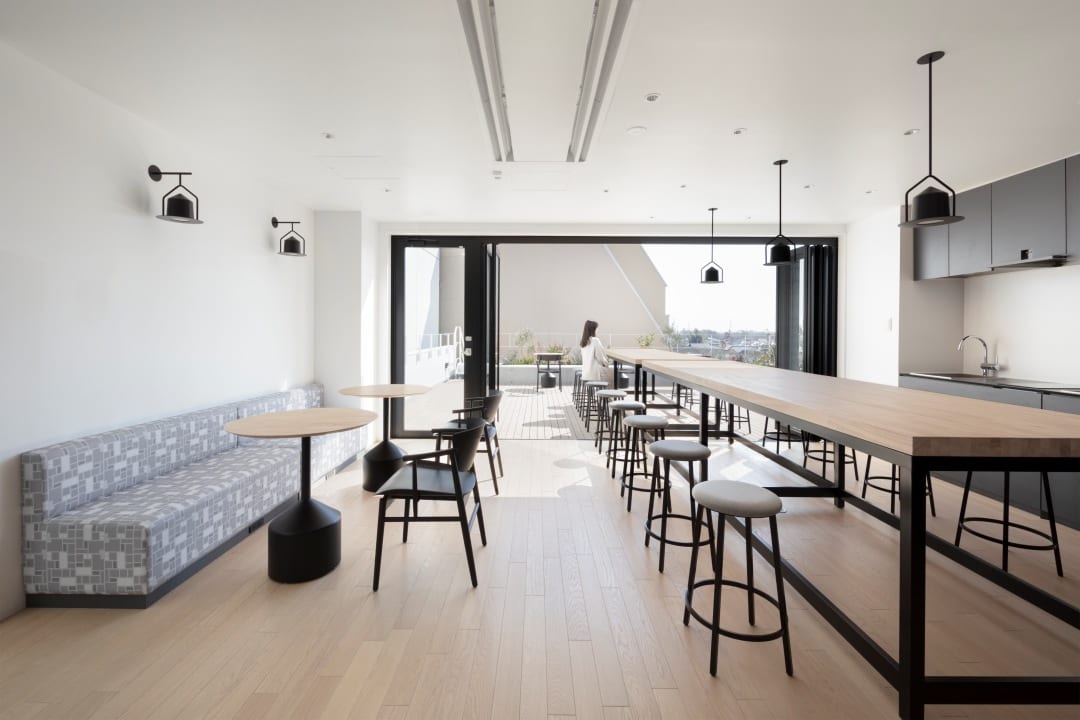
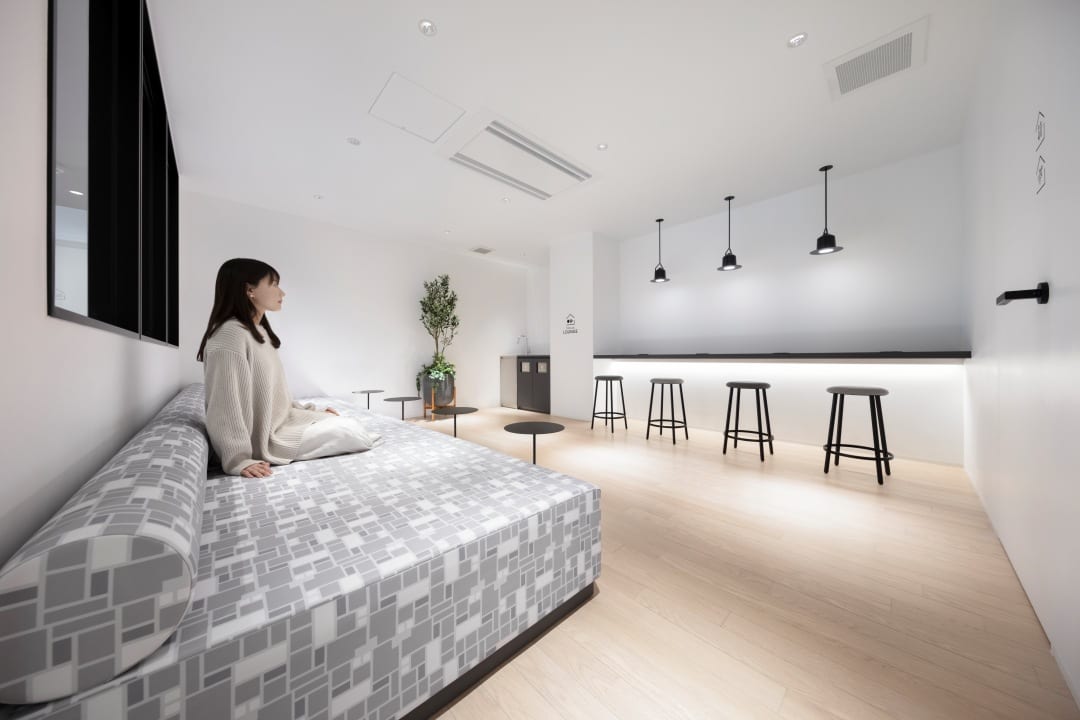
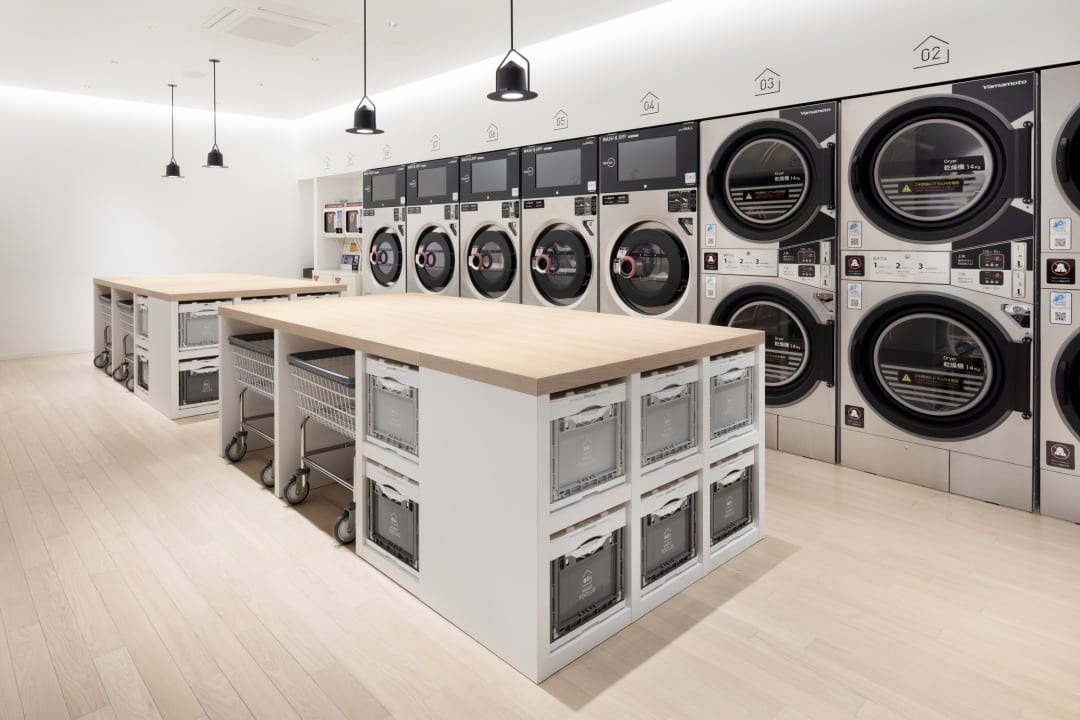
Nendo has also designed the products around the design of the logo and it stands out for the simplicity in design.
All Photos Courtesy: Nendo
Photographers: Takumi Ota and Yoshida.


